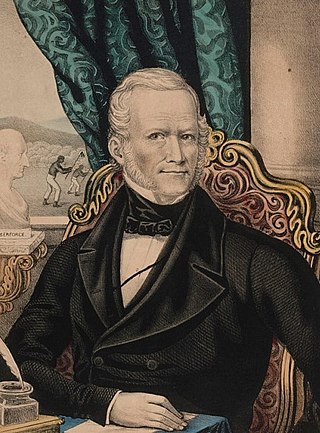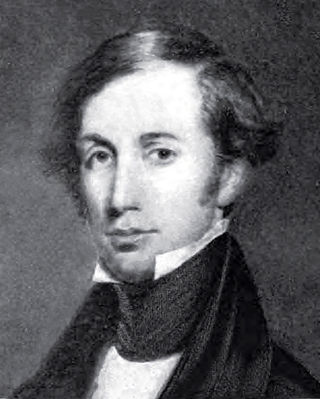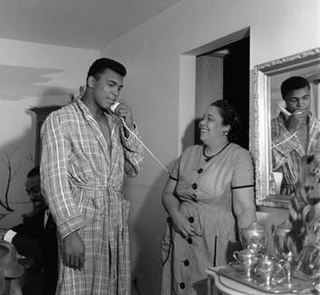Related Research Articles

Richmond is a home class city in Kentucky and the county seat of Madison County, Kentucky, United States. It is named after Richmond, Virginia, and is home to Eastern Kentucky University. With close proximity to Lexington, Richmond is considered by many to be a great place to live. It has an average - high cost of living compared to other areas. The population was 38,030 as of 2024. Richmond is the fourth-largest city in the Bluegrass region and the state's seventh-largest city. It is the ninth largest population center in the state with a Micropolitan population of 106,864. The city serves as the center for work and shopping for south-central Kentucky, with many local and chain options alike. Richmond KY is home to numerous festivals, notably the Millstone Festival. In addition, Richmond is the principal city of the Richmond-Berea, Kentucky Micropolitan Area, which includes all of Madison and Rockcastle counties.
Rahaman Ali is an American former heavyweight boxer. He is the younger brother of Muhammad Ali.

James Gillespie Birney was an American abolitionist, politician, and attorney born in Danville, Kentucky. He changed from being a planter and slave owner to abolitionism, publishing the abolitionist weekly The Philanthropist. He twice served as the presidential nominee for the anti-slavery Liberty Party.

Green Clay was an American businessman, planter, military officer and politician in Virginia and Kentucky. Clay served in the American Revolutionary War and helped form the new state of Kentucky after representing its Madison County in the Virginia Ratifying Convention of 1788 and in the Virginia House of Delegates which ultimately authorized creation of the new state of Kentucky. He also served in Kentucky's constitutional convention and in both houses of the Kentucky General Assembly, which would name a county for him in 1807. During the War of 1812 Clay was commissioned as a general and led the Kentucky militia in the relief of Fort Meigs in Ohio. He was believed to be one of the wealthiest men of the state, owning tens of thousands of acres of land, many slaves, several distilleries, a tavern, and ferries, although one of his sons, Cassius Marcellus Clay would become a prominent abolitionist.

Henry Clay Jr. was an American politician and soldier from Kentucky, the third son of US Senator and Representative Henry Clay and Lucretia Hart Clay. He was elected to the Kentucky House of Representatives in 1835 and served one term. A graduate of West Point, he served in the Mexican–American War and was killed in 1847 at the Battle of Buena Vista.

Major General Cassius Marcellus Clay was an American planter, politician, military officer and abolitionist who served as the United States ambassador to Russia from 1863 to 1869. Born in Kentucky to a wealthy planter family, Clay entered politics during the 1830s and grew to support the abolitionist cause in the U.S., drawing ire from fellow Southerners. A founding member of the Republican Party in Kentucky, he was appointed by President Abraham Lincoln as the U.S. minister to Russia. Clay is credited with influencing Russian support for the Union during the American Civil War.

Archibald Dixon was a U.S. Senator from Kentucky. He represented the Whig Party in both houses of the Kentucky General Assembly, and was elected the 13th Lieutenant Governor of Kentucky in 1844, serving under Governor William Owsley. In 1851, the Whigs nominated him for governor, but he lost to Lazarus W. Powell, his former law partner.

John Young Brown was an American politician from the U.S. Commonwealth of Kentucky who represented the state in the United States House of Representatives and served as its 31st governor. Brown was elected to the House of Representatives for three non-consecutive terms, each of which was marred by controversy. He was first elected in 1859, despite his own protests that he was not yet twenty-five years old, the minimum age set by the Constitution for serving in the legislature. The voters of his district elected him anyway, but he was not allowed to take his seat until the Congress' second session, after he was of legal age to serve. After moving to Henderson, Kentucky, Brown was elected from that district in 1866. On this occasion, he was denied his seat because of alleged disloyalty to the Union during the Civil War. Voters in his district refused to elect another representative, and the seat remained vacant throughout the term to which Brown was elected. After an unsuccessful gubernatorial bid in 1871, Brown was again elected to the House in 1872 and served three consecutive terms. During his final term, he was officially censured for delivering a speech excoriating Massachusetts Representative Benjamin F. Butler. The censure was later expunged from the congressional record.
The Clays were an influential nineteenth-century U.S. political and business dynasty. The Clays are of English stock, and there are quite a few Clay families still in England, and also in other parts of the world.

Laura Clay, co-founder and first president of the Kentucky Equal Rights Association, was a leader of the American women's suffrage movement. She was one of the most important suffragists in the South, favoring the states' rights approach to suffrage. A powerful orator, she was active in the Democratic Party and had important leadership roles in local, state and national politics. In 1920 at the Democratic National Convention, she was one of two women, alongside Cora Wilson Stewart, to be the first women to have their names placed into nomination for the presidency at the convention of a major political party.

Mary Barr Clay was a leader of the American women's suffrage movement. She also was known as Mary B. Clay and Mrs. J. Frank Herrick.

White Hall State Historic Site is a 14-acre (5.7 ha) park in Richmond, Kentucky, southeast of Lexington. White Hall was home to two legendary Kentucky statesmen: General Green Clay and his son General Cassius Marcellus Clay, as well as suffragists Mary Barr Clay and Laura Clay. On April 12, 2011, White Hall was designated as a national historic site in journalism by the Society of Professional Journalists, because of Clay's career as a publisher.

Brutus Junius Clay was a U.S. Representative from Kentucky, and a son of Green Clay. His brother Cassius Marcellus Clay also was a politician in the state, and they both joined the Unionist Party at the time of the American Civil War.

The history of slavery in Kentucky dates from the earliest permanent European settlements in the state, until the end of the Civil War. In 1830, enslaved African Americans represented 24 percent of Kentucky's population, a share that had declined to 19.5 percent by 1860, on the eve of the Civil War. Most enslaved people were concentrated in the cities of Louisville and Lexington and in the hemp- and tobacco-producing Bluegrass Region and Jackson Purchase. Other enslaved people lived in the Ohio River counties, where they were most often used in skilled trades or as house servants. Relatively few people were held in slavery in the mountainous regions of eastern and southeastern Kentucky; they served primarily as artisans and service workers in towns.

Odessa Lee Clay was the mother of three-time world heavyweight champion Muhammad Ali and Rahaman Ali, and the paternal grandmother of Laila Ali. She married Cassius Marcellus Clay Sr. in the 1930s and worked for some time as a household domestic to help support her young children. She supported and inspired her son throughout his boxing career and was a ring-side regular at his bouts.
Cassius Marcellus Clay Sr. was an American painter and musician. He was the father of three-time World Heavyweight Champion Muhammad Ali and Rahaman Ali, and the paternal grandfather of Laila Ali. He married Odessa Lee O'Grady in 1934 and worked as a painter. He was described as "a handsome, mercurial, noisy, combative failed dreamer" and a "hard-drinking, skirt-chasing dandy of a daddy". His son Muhammad Ali described him as "the fanciest dancer in Louisville".
Elisha Warfield Jr. was an American physician and a Thoroughbred racehorse owner and breeder whom Thoroughbred Heritage calls "one of the most important early figures in Kentucky racing and breeding."

The Lucy Walker steamboat disaster was an 1844 steamboat accident caused by the explosion of the boilers of the steamboat Lucy Walker near New Albany, Indiana, on the Ohio River. The explosion occurred on the afternoon of Wednesday, October 23, 1844, when the steamer's three boilers exploded, set the vessel on fire, and sank it. It was one of a number of similar accidents of early 19th-century riverine transportation that led to important federal legislation and safety regulations. The vessel's owner was a Native American; her crew were African-American slaves, and her passengers represented a cross-section of frontier travelers.
Thomas Lewis was an American Revolutionary War veteran who figured prominently in the early development of Lexington, Kentucky and the Commonwealth of Kentucky. He administered the oath of office to Kentucky's first governor, Isaac Shelby, in 1792.

Mary Jane Warfield Clay was an American socialite, suffragist, abolitionist, and political activist. An early leader in the suffrage movement in Kentucky, she began by forming a suffrage club at her home in 1879. Her experience and success as a farm manager included her acute business sense in the middle of the American Civil War. She sold supplies from her farm to both Union and Confederate forces when they each occupied the Commonwealth.
References
- ↑ "Cassius Marcellus Clay". Encyclopaedia Britannica. Retrieved 23 February 2019.
- 1 2 "The True American | Lexington Public Library". www.lexpublib.org.
- ↑ Mandell, Tim (13 April 2011). "The True American". Richmond Register. Retrieved 23 February 2019.
- ↑ "Cassius Marcellus Clay". biography.com. Retrieved 23 February 2019.